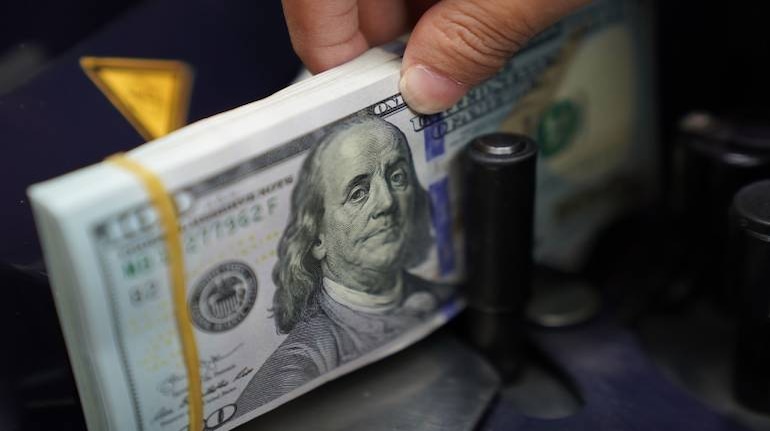



The market regulator passed seven orders on July 26 and 31, following investigations into the rigging of Global Depository Receipt (GDR) issues of seven different companies. But all the orders named one person as having 'devised' the fraudulent issues collectively worth more than $150 million over 2010-2011—Arun Panchariya.
Panchariya (sometimes spelt Pancharia), who according to his website is Chief Inspector – diplomat at a human-rights organisation that works with the United Nations and who used to be the Consul General of Liberia, was fined Rs 1.75 crore in total (Rs 20 lakh for five companies, Rs 25 lakh for the fifth and Rs 50 lakh for the seventh).
According to the Securities and Exchange Board of India (Sebi) investigators, the companies and Panchariya misled investors into believing that there was a genuine demand for the companies’ GDR issues, when in fact the issues were bought by a Panchariya-controlled firm Vintage FZE (now known as Alta Vista International).
The GDR issues of the seven companies — Rainbow Papers, Southern Ispat and Energy, Edserve Softsystems, Zenith Steel Pipes & Industries, Nakoda Ltd, Teledata Technology, Texmo Pipes and Products — were similar to the 56 others done by 51 companies, which were being investigated by the regulator between 2002 and 2014.

In one of the orders, Sebi stated that Panchariya along with Vintage (the sole buyer of the company’s GDR issue) and Pan Asia (lead manager of the GDR issue) had been involved in “similar fraudulent GDR issues”, in which they used similar modus operandi and in which they had faced penalty by the regulator multiple times.
So what was this modus operandi?
It starts with a company signing on Pan Asia Advisors, a UK-based entity, as the lead manager for an issue. Panchariya held 100 percent of the shares in Pan Asia between July 2008 and January 2012.
Then Vintage offers to buy the GDR issue using a loan issued by European American Investment Bank AG (EURAM Bank) and the issuer company offers to secure that loan with the proceeds of the loan by signing a pledge agreement. That is, through a circular arrangement, the company was providing the capital to buy its own GDR issue. The Sebi order on Southern Ispat and Energy explained how such an arrangement misled existing investors and prospective investors into thinking that there was a demand for the company’s issue among foreign investors.
The order stated that both existing and prospective investors “were aware of the positive news that the Issuer Companies had raised foreign capital through GDRs but were completely unaware of the activities of the Noticee (Panchariya) and SIEL (Southern Ispat and Energy), in such GDR issues.”
Now, back to the modus operandi. After buying the GDR issue, Vintage defaults on the loan to varying extents and the defaulted amount is set off against the deposit (pledge for the loan) of the issuer company.
Through this arrangement, Vintage comes in possession of a percentage of GDR completely free of cost since the cost of that is borne by the issuer company—as you may recall, through the GDR proceeds deposited as security for the loan with EURAM Bank.
Inflating share prices
These free GDRs are then sold to Foreign Institutional Investor (FII) sub-accounts, which are “controlled and connected” to Panchariya—such as India Focus Cardinal Fund (IFCF), High Blue Sky Emerging Market Fund (HBSF) and Aspire Emerging Fund (ASPIRE). The sub-accounts then convert the GDRs to equity shares and sell them in the Indian market, where the sentiment towards the company is highly positive after the news of the fully-subscribed GDR.
In some instances, the investigators also found that these shares were being bought by a common set of clients (Indian investors), who would then trade amongst themselves before offloading them to retail investors.
According to Sebi officials, shares of Southern Ispat and Energy acquired and sold in such a manner delivered Rs 23.05 crore, and those of Edserv were sold for Rs 12.86 crore.
Also read: Sebi fines MSEI, its MD, CFO for flouting Securities Contracts rules
Besides the lead manager and sub-accounts of FII, even the bank that provided the loan for buying the GDR issue seems to have been connected to Panchariya, according to Sebi investigators.
In the order on Panchariya’s role in Southern Ispat and Energy’s GDR issue, Sebi’s Adjudicating Officer G Ramar noted that Pan Asia had a joint venture with EURAM Bank—which was EURAM Bank Asia—in which EURAM Bank held 51 percent and Pan Asia held 49 percent. Panchariya resigned from his post as the President of EURAM Bank Asia in September 2011. That month, Sebi’s investigations into his irregularities had led the Dubai Financial Services Authority (DFSA) to withdraw Panchariya’s licence.
In all, Panchariya seemed to be present in some way or the other across the chain.
Discover the latest Business News, Sensex, and Nifty updates. Obtain Personal Finance insights, tax queries, and expert opinions on Moneycontrol or download the Moneycontrol App to stay updated!
Find the best of Al News in one place, specially curated for you every weekend.
Stay on top of the latest tech trends and biggest startup news.